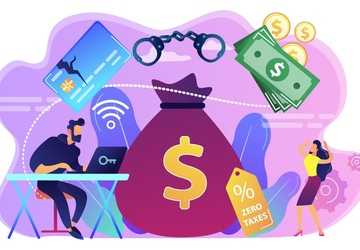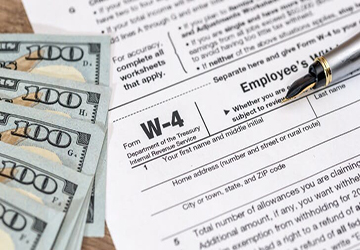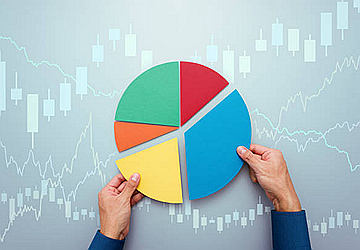Scamming and committing fraud is illegal, but unsavory folks still do it to make easy money without having to work on an actual job. But those who get scammed lose their hard-earned money. In the US alone, scammers stole more than $8.8 billion in 2022, which is a considerable amount considering accounts have become more secure. So what does a regular person should do to avoid getting scammed?

Continue reading this article and find out the best ways you can do that.
Starting At Your Mailbox
No matter how digitalized our interactions have become, there will always be some sort of physical correspondence until most shift to online. Most notable correspondence regarding financial situations is done through mail. So scammers also know that and can steal these letters containing your information.
There have been instances where scammers and fraudsters steal delivered cheques, remove the ink, and use blank cheques to scam as much money as they can.
The best way to stop this is to get informed delivery services where the issuing authority informs you when the delivery is fulfilled. This way you can be prepared and collect it when it arrives.
Keeping Your Online Account Safe
While we discussed physical safety in the previous section, many more scams happen on your online account and transactions. Here are a few ways to counter that and keep your account safe.
Account Notifications – Ask your bank to send you a text message and email every time there is a transaction so you are aware of each transaction.
Passwords – Change your password regularly, especially in banking apps, to a difficult one, as your bank suggests. The thing to note is that most people like to keep the same password for multiple accounts. Please don't do that, as it is calling for disaster. If a scammer gets hold of one of your accounts, all your accounts will be vulnerable.
Caution When Purchasing Online – Most secure websites will show a lock on the web address, which you can click to get the secure information. Don’t use websites that have SSL errors and aren't secure. Only use authorized websites and only shop on renowned websites. Secondly, when making purchases online, always connect via a secure internet connection.
Avoid Phishing Emails – Many scammers use emails to extract information from you, saying your account is blocked, you need to update information about your account, etc. If you receive such emails and calls, immediately call your bank’s helpline and confirm.
Dispose of Documents Properly – No matter which personal or financial information document you are disposing of, always shred it or burn it. You don’t want scammers to get their hands on this valuable information.

Credit Card Skimming
Credit card skimming is one of the latest scamming methods that has shown people lose more than a billion dollars each year, and it is growing. Unfortunately, people don’t vary when making purchases at small shops, gas stations, or stores that aren’t as recognized.
In these cases, different scammers install a credit card information reader under the credit/debit card machine, which you cannot easily spot. Now, when a customer wants to pay for some small purchase, they connect or swipe their card. The reader extracts the information and sends it to a connected computer.
If you want to avoid that, always observe if the machine is in good order and if it is tempered. Look for scratches, indentations, or anything out of the ordinary. If you observe anything out of the ordinary, stop immediately and don’t make a purchase. It is simple to apologize and not make a purchase, then become a victim of theft.
Keep Your Wallet Safe
Always keep your wallet safe and carry only necessary things. You don’t need to carry most of your cards other than the most important ones. We don't recommend carrying a Medicare card or similar identification that you don’t need daily. Every time you make a purchase, make sure you place everything back where it belongs. Also, take your time when purchasing, as sometimes you can misplace things when in a hurry.
Keep Your Smartphone Safe and Updated
Always have biometric verification on your phone so that no one else can unlock it and extract information. It would be best if you also kept your phones updated, especially the security updates. Many scammers have learned ways to enter your mobile phones and steal information.
Please don't pick up unknown calls; instead, connect them to voicemail and send an automated message to state the name and business before picking them up. If you do receive an unsolicited call claiming to be a representative from your bank, finish the call amicably. Make sure to avoid mentioning any information.
Once the call is finished, immediately call the bank and inform or inquire.
You can even lock your banking and chat apps under another lock so that no one but you can access them.
Keep Your Personal Computer Safe and Secure
When you are accessing sensitive information from your computer, make sure 2FA is turned on for all your important websites. Most banks and apps allow this facility. As you have already secured your phone, this way no one can access your accounts this way. If they can't log in, they can't do anything wrong to you.
Furthermore, make sure your Windows or other operating systems are updated regularly. Make sure you keep the Antivirus or MS Defender updated, too. You can also do the same for your social media accounts, too, and don't befriend anyone you actually don’t know.
Final Words
The digital world has given us so many great conveniences that we interact primarily online. We order things online, make transactions, watch movies, and do so much more on our mobiles and PCs. But we should be wary as the scammers also know very well how these things work.
No matter how secure you are or how tools become scammers, hackers will still find a loophole as the digital world is constantly evolving. In the end, it is best to keep updated with the latest scamming methods and keep an open eye.









